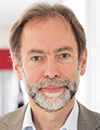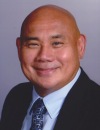Amanda EvansScientist, Los Alamos National Laboratory Dr. Evans received her Ph.D. in organic synthesis from the University of Cambridge (Professor Steven Ley). She was subsequently appointed as a Teaching Fellow and Director of Studies in Chemistry at Murray Edwards College, University of Cambridge. She has been a Fulbright Scholar and a RSC JWT Fellowship recipient, in addition to appointments as a Visiting Professorship at the University of Nice – Sophia Antipolis and as an Assistant Professor in Bio-Organic Chemistry at California State University Fullerton. Dr. Evans currently works at Los Alamos National Laboratory as a Scientist (Physical Organic Chemistry) in the Biosciences Division. She utilizes both batch and continuous processing/bioprocessing approaches for making molecules and her research interests remain diverse, spanning microfluidic syntheses, continuous flow biocatalysis, high energy compounds, DNA nanotechnology, and polymeric materials. She possesses an extensive background in the generation of chiral substrates and the use of synthetic techniques in combination with other cross-disciplinary methods to construct and characterize molecular or macromolecular compounds with useful material and/or biological properties for interdisciplinary applications. She is particularly interested in establishing more innovative, scalable and sustainable enabling methodologies for creating chiral molecules. |
Michael GelinskyProfessor and Head, Center for Translational Bone, Joint and Soft Tissue Research, Faculty of Medicine, Technische Universität Dresden Michael Gelinsky received his PhD in Chemistry from Freiburg University (Germany). In 1999 he moved to TU Dresden and worked for around 10 years at the department of Materials Science, heading his own group at the newly founded Max Bergmann Center of Biomaterials from 2002. In 2010 he was appointed Full Professor at the Faculty of Medicine and head of the Centre for Translational Bone, Joint and Soft Tissue Research (tu-dresden.de/med/tfo). His work is focused on biomaterials and scaffold development, tissue engineering and regenerative therapies, mostly for musculoskeletal tissues. His group is also very active in the field of additive manufacturing of implants and biofabrication technologies. Michael Gelinsky is currently President of the German Society for Biomaterials, is a member of the Board of Directors of the International Society for Biofabrication (ISBF) and has been appointed as coordinator of an ESA Topical Team on “3D Bioprinting of living tissue for utilization in space exploration and extraterrestrial human settlements”. He also is member of the ESA Facility Science Team (FST) for the development of a bioprinter and 3D cell culture system for the ISS. |
Volker HesselProfessor, School of Chemical Engineering, The University of Adelaide Professor Volker Hessel studied chemistry at Mainz University (PhD in organic chemistry, 1993). In 1994 he entered the Institut für Mikrotechnik Mainz GmbH. In 2002, Prof. Hessel was appointed Vice Director R&D at IMM and in 2007 as Director R&D. In 2005 and 2011, Prof. Hessel was appointed as Part-time and Full Professor at Eindhoven University of Technology, respectively. He was Honorary Professor at TU Darmstadt, Germany and is Guest Professor at Kunming University of Science and Technology, China. Prof. Hessel was appointed as Deputy Dean (Research) and Full Professor at the School of Chemical Engineering in the ECMS Faculty at the University of Adelaide, Australia. He is (co-)author of > 450 peer-reviewed (h-index: 54). He received the AIChE Award “Excellence in Process Development Research” in 2007, the ERC Advanced Grant “Novel Process Windows” in 2010, the ERC Proof of Concept Grant in 2017, the IUPAC ThalesNano Prize in Flow Chemistry in 2016, the FET OPEN Grant in 2016, and the ERC Synergy Grant 2018. He was authority in the 35-man teamed Parliament Enquete Commission "Future of the Chemical Industry" in Nordrhine-Westfalia. |
Lorenzo MoroniProfessor, Biofabrication for Regenerative Medicine, Maastricht University and Founder MERLN Institute for Technology-Inspired Regenerative Medicine Prof. Dr. Lorenzo Moroni studied Biomedical Engineering at Polytechnic University of Milan, Italy, and Nanoscale Sciences at Chalmers Technical University, Sweden. He received his Ph.D. cum laude in 2006 at University of Twente on 3D scaffolds for osteochondral regeneration, for which he was awarded the European doctorate award in Biomaterials and Tissue Engineering from the European Society of Biomaterials (ESB). In 2007, he worked at Johns Hopkins University as a post-doctoral fellow in the Elisseeff lab, focusing on hydrogels and stem cells. In 2008, he was appointed the R&D director of the Musculoskeletal Tissue Bank of Rizzoli Orthopedic Institute, where he investigated the use of stem cells from alternative sources for cell banking, and the development of novel bioactive scaffolds for skeletal regeneration. From 2009 till 2014, he joined again University of Twente, where he got tenured in the Tissue Regeneration department. Since 2014 he works at Maastricht University, where he is a founding member of the MERLN Institute for Technology-Inspired Regenerative Medicine. In 2016, he became full professor in biofabrication for regenerative medicine. His research group interests aim at developing biofabrication technologies to generate libraries of 3D scaffolds able to control cell fate, with applications spanning from skeletal to vascular, neural, and organ regeneration. In 2014, he received the prestigious Jean Leray award for outstanding young principal investigators from the ESB and the ERC starting grant. In 2016, he also received the prestigious Young Scientist Award for outstanding principal investigators from TERMIS. In 2017, he was elected as faculty of the Young Academy of Europe and in the top 100 Italian scientists within 40 worldwide by the European Institute of Italian Culture. Since 2019, he is chair of the Complex Tissue Regeneration department and vice-director of MERLN. From his research efforts, 3 products have already reached the market. |
Danilo TagleDirector, Office of Special Initiatives, National Center for Advancing Translational Sciences at the NIH (NCATS) Dan Tagle is Director of the Office of Special Initiatives at NCATS where he many coordinates efforts towards development of disruptive technologies in translational research. He obtained his Ph.D. in Molecular Biology and Genetics from Wayne State University School of Medicine. He was an NIH National Research Service Award postdoctoral fellow in Human Genetics at the University of Michigan. He has served on numerous committees, advisory boards, and editorial boards. He has authored many scientific publications and has garnered numerous awards, including more recently the Roscoe O. Brady Award for Innovation and Accomplishment, and the Henry J. Heimlich Award for Innovative Medicine. |




